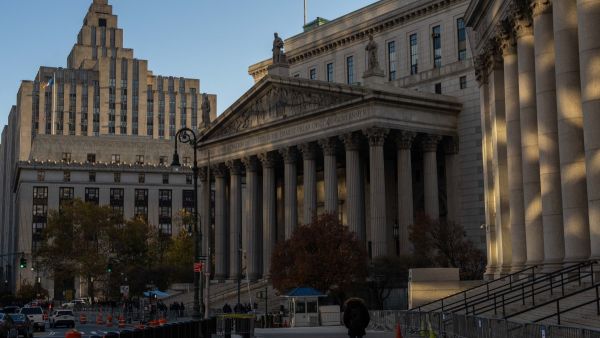The US Supreme Court has introduced an ethics code in the wake of recent controversies involving justices receiving extravagant gifts and luxury vacations.
Unlike other federal judges, the nine members of the Supreme Court were not explicitly subjected to ethical oversight, prompting calls from Senate Democrats for the adoption of a code of conduct.
In an official statement, the Supreme Court acknowledged that the absence of a formal code had led to a "misunderstanding" that the justices considered themselves exempt from ethics rules. The newly introduced nine-page Code of Conduct represents a codification of principles that the court claims to have long regarded as governing its conduct.
The move follows a report by ProPublica, revealing that Justice Clarence Thomas had accepted years of luxury travel from a billionaire Republican, including trips to New Zealand and private jet flights globally. Another conservative justice, Samuel Alito, was reported to have taken a luxury fishing trip to Alaska in 2008 on a private jet owned by a billionaire hedge fund manager who later had cases before the court. Both justices denied any impropriety.
The Code of Conduct, signed by all nine justices, mandates them to "uphold the integrity and independence of the judiciary" and to "avoid impropriety and the appearance of impropriety in all activities." It explicitly prohibits allowing personal relationships to influence official conduct and judgment.
The code also includes rules on gift acceptance and prohibits justices from speaking at events "sponsored by or associated with a political party or a campaign for political office."
Critics argue that the adoption of a code of conduct is "long-overdue" but insufficient without a mechanism to investigate and enforce violations. Democratic Senator Sheldon Whitehouse, a member of the Senate Judiciary Committee, emphasized that a code of ethics needs enforcement to be binding and cited the inadequacy of the honor system for members of the Supreme Court.
Despite the adoption of the code, the Supreme Court's popularity is reportedly at historic lows, with only 41 percent of Americans approving of its job performance, according to a recent Gallup poll. Notably, Republicans were more likely to have a favorable opinion of the court than Democrats.







